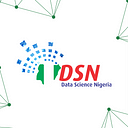Geospatial Innovations for Sustainable Development: Highlights from Geopalooza 4.0 in Nairobi, Kenya.
Data Science Nigeria was at the recently concluded global geospatial data symposium, #Geopalooza 4.0, held in Nairobi, Kenya from July 23rd to 26th, 2024. Organized by the Gates Foundation, the conference brought together leading experts, practitioners, and enthusiasts from the geospatial and technology sectors. Over three days, the event served as a vibrant platform for knowledge sharing, innovation, and collaboration.
Conference Sessions and Key Takeaways
The conference featured a range of keynotes, lightning talks, and panel sessions that explored the role of geospatial data, tools, and technology in addressing global challenges. Sessions highlighted the latest advancements in geospatial data analytics, remote sensing, modeling, geographic information systems (GIS), satellite imagery analysis, environmental monitoring, urban planning, and disaster management. Workshops provided practical training on cutting-edge tools and software and shared learnings from geospatial projects across various sectors, including agriculture, health, and infrastructure development, fostering skills development and capacity building among attendees. Experts discussed best practices, challenges, innovative solutions, and the future of geospatial technology, emphasizing data integration, collaboration, and sustainable development.
Participation and Presentations by Data Science Nigeria
At the conference, our founder, Dr. Olubayo Adekanmbi, participated in a panel session where he shared insights on strategies to enhance in-country geospatial capacity through assessment and sustainability. He emphasized the need to localize geospatial skills by building on existing knowledge and tools to stimulate interest.
“We need to localize geospatial skills by building on what people are used to or what people are already using, which will stimulate their interest.” Dr. Olubayo Adekanmbi
Also, three of our Geospatial Data Scientists and an AI Engineer (Bashirudeen, Nasiru Olagunju and Shaibu Benjamin Ojoka) presented some of our works at the conference. Their presentations showcased the triangulation of multiple datasets to address health and development problems in low-resourced contexts. These included:
- Assessing the risks of electromagnetic field exposure informed by geospatial clustering.
- Using human community and mobility data to determine the optimal locations for vaccine intervention points during emergencies.
- Utilizing satellite imagery for environmental monitoring.
The conference was a landmark event that underscored the transformative potential of geospatial technology in driving sustainable development and improving lives across the African continent and the broader geospatial ecosystem.
